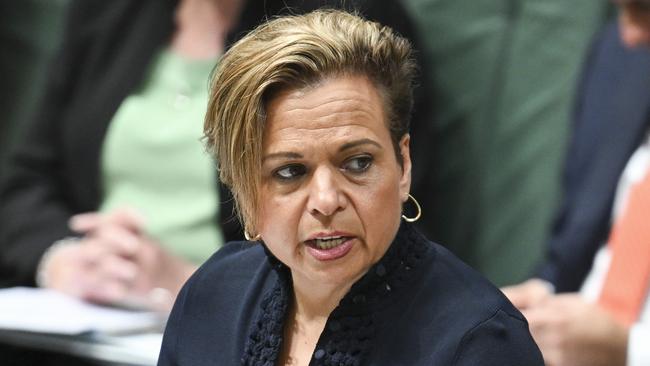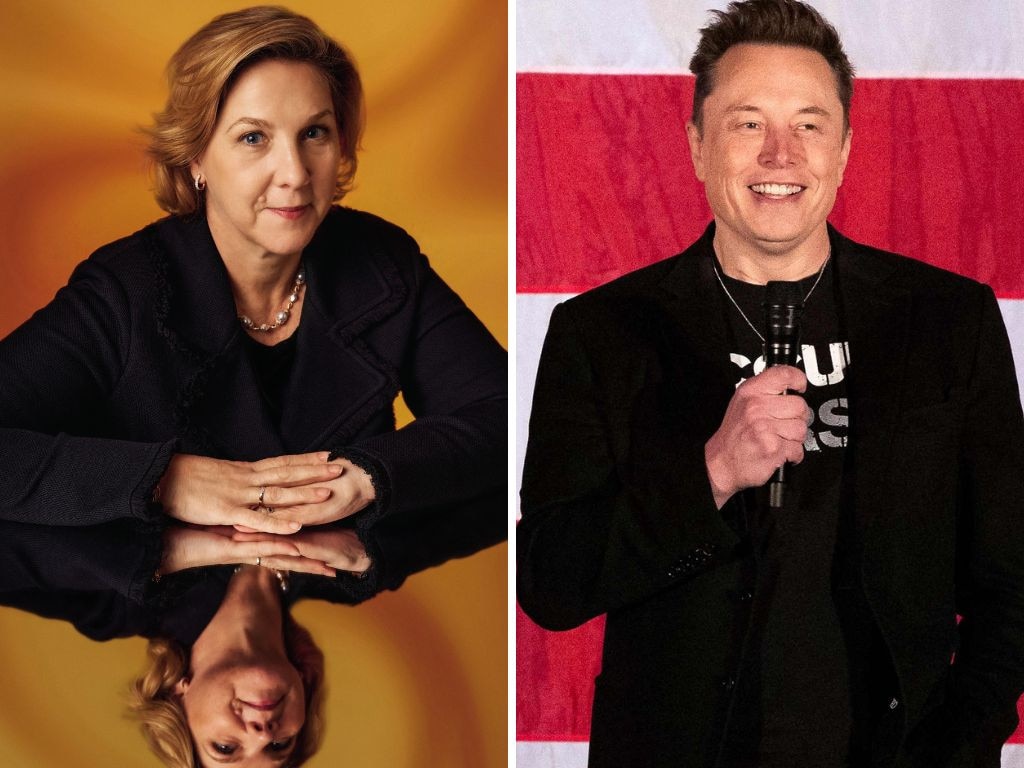Michelle Rowland slams Meta over fact check decision and backs news outlets
Communications Minister Michelle Rowland says the need for trusted information has ‘never been more important’, after Meta axed independent fact-checking.

Communications Minister Michelle Rowland says the need for access to trusted information has “never been more important” after tech giant Meta abandoned independent fact-checking on its social media platforms in the US.
After tech billionaire and Meta founder Mark Zuckerberg announced he was scrapping third-party fact checkers on Facebook and Instagram, Ms Rowland declared the antidote to online misinformation was “quality, fact-checked information” from public broadcasters.
Meta’s shift towards X-style “community notes”, where users comment on the accuracy of posts, comes just weeks ahead of Donald Trump’s returns to the White House. The president-elect – a close ally of tech billionaire and X Corp owner Elon Musk – has previously criticised Meta for hindering free speech and censoring right-wing views.
Meta’s changes to third-party fact-checking are occurring only in the US at this stage, not in other jurisdictions such as Australia.
With the Albanese government increasingly at odds with Mr Trump over a push to place limits on social media access and combat online misinformation, Ms Rowland said Labor was committed to “high quality and diverse public interest journalism”.
“Misinformation can be harmful to people’s health, wellbeing, and to social cohesion,” a spokesman for Ms Rowland said.
“Misinformation … is complex to navigate and hard to recognise.
“Access to trusted information has never been more important.
“That’s why the Albanese government is supporting high quality, fact-checked information for the public through ongoing support to ABC, SBS and AAP.”
Anthony Albanese said tech giants had a “social responsibility” and backed his government’s ban on teenagers under 16 accessing social media, which passed parliament with bipartisan support in the final sitting week of the year.
“We know that the rise in mental health issues for young people is linked with social media,” the Prime Minister said.
“All of the experts tell us that that’s the case. So we’ll continue to act in our national interest.
“And I say to social media – they have a social responsibility and they should fulfil it.”
Labor will also force tech giants to pay for Australian journalism under a new scheme that will tax digital platforms, such as Facebook, if they do not negotiate with news providers.
The initiative announced in December was in response to threats from Meta to block news content on its platforms if it’s forced to pay. Meta withdrew from the Morrison-era media bargaining code, which was worth an estimated $1bn to media outlets.
eSafety Commissioner Julie Inman Grant warned Meta that despite the changes, it “must comply with Australian law” and her organisation would continue to remove harmful content, such as child sex abuse, pro-terror and cyber abuse material.
“eSafety will continue to ensure compliance and we note Meta’s comments in relation to its ongoing focus on this area,” she said. “eSafety will also continue to use its transparency powers to require or request answers from tech companies about what they are and are not doing to tackle a range of online harms and whether they are living up to the government’s Basic Online Safety Expectations.”
Australian National University Tech Policy Design Centre founding director Johanna Weaver said Meta’s move “underscores both the futility and fragility of stand-alone self-regulation”.
“With Trump’s election, it is even more unlikely that this type of tech regulation will come from the US,” Professor Weaver said.
“This creates opportunities for other governments brave enough to step into the breach.”
Monash University associate professor of news and political communication Emma Briant criticised Meta’s move to abandon fact checkers, saying anyone surprised by the decision “learned nothing from Mark Zuckerberg’s role in the Cambridge Analytica affair”.
Cambridge Analytica was a data firm that worked for the Trump’s 2016 campaign and shut down following allegations about its misuse of Facebook data and the tactics it pitched to clients.
“While they may pay lip service to the policy concerns of the moment, tech oligarchs run their companies to maximise profits and minimise costs, not to be society’s protector or mediate a neutral, democratic town hall,” Professor Briant said.
“This applies to all of them, not just Elon Musk. There is nothing to stop tech oligarchs weaponising their platforms to suit political objectives when the moment is right.
“Fact-checking is only one small part of the solution to the problem of contemporary propaganda.”
Cyber safety expert Susan McLean, who has 27 years’ experience in cybercrime with Victoria Police, also criticised the move, saying more education for children and adults was required to improve “digital literacy”.
“It’s just going to allow misinformation to thrive,” she said. “There’ll be limited protections in place for abuse. Again, it puts the onus on the victim of the abuse to report it, rather than the platform proactively removing content.”





To join the conversation, please log in. Don't have an account? Register
Join the conversation, you are commenting as Logout